Interview with Dave Levitan
This past Saturday, I had the privilege of moderating a Q&A session with author Dave Levitan at the 15th annual Collingswood Book Festival in Collingswood, New Jersey. Levitan’s book, Not a Scientist, How Politicians Mistake, Misrepresent, and Utterly Mangle Science was the topic of lively debate. One of the organizers told me she’d been involved since the Festival’s inception when it was just a few authors sitting around in the library discussing their books. Today, it’s grown to over five city blocks along Main Street, chock full of authors selling their works. Whether you’re a reader or a writer, the Collingswood Book Festival a great way to spend a Saturday in autumn.
The following is an email interview of Dave Levitan that we did as a warm up to the moderation session. I, of course, didn’t ask him all these questions at the live event as the audience wanted their chance, too, but I wanted to share his answers to give you a feel for Dave’s wit and good humor. Enjoy!
PJL: I read your essay entitled, “The Squid Will Not Be Happy,” which explains how you came to your career in journalism, starting out as a physics major and then switching to English but never losing your love of science. I happen to think that there’s a gap in this country when it comes to understanding science fundamentals and a real need for a translator who can bridge the gap of understanding between the nerdy science geeks and the rest of the world. You do that brilliantly in your book, “Not A Scientist.” Do you ever just wish you would have stayed with physics (or chemistry, or math) and became a scientist?
DL: In general, no, I feel like I made the right choice. Scientists generally have to focus in on some tiny bit of their field, and work for years or even decades on that little thing, and I just don’t think I have the attention span. I’m much more comfortable flitting around a bit from topic to topic, which makes science journalism a good match. I will say, though, that there have been exceptions—every time I watch SpaceX launch one of its rockets and then land it perfectly back on the landing pad, and they show the people who work in the control room cheering their heads off, I wonder if I ended up in the wrong field. It just looks so collaborative and joyful! But most of the time I feel okay about that decision.
PJL: Obviously, your idea for the book came out of your extensive science background. How did that first come about? Were either of your parents scientists? Did you have a great science teacher that sparked your curiosity? Or was it something else?
DL: Yup, my father is a neuroscientist, and I’m sure that helped to some degree. When I was growing up, we would spend summers in Woods Hole, on Cape Cod, which is a weird little summer town almost entirely populated by scientists and their families – the Woods Hole Oceanographic Institution is there (they’re the ones who found the wreck of the Titanic), the Marine Biological Laboratory, and like four other scientific institutions. In other words, it just sort of surrounded me as a kid, and while I didn’t feel any urge to take after my father or anything, I think the appreciation for science and scientific method and evidence just sort of seeped in over the years.
PJL: This past Earth Day we had a March for Science in lots of cities around the country. What I got from that is that lots of people are simply out of touch with the role of science in their every day lives. What would you do to educate the layman on the importance of science, but also to the prevalence.
DL: That’s a great question, but a really far-reaching one. I think the long-term answer involves improvements to science education in the country – if we all grew up with a better appreciation for the scientific method, and for the ways science plays a role in our lives, then we probably wouldn’t need marches to remind us. But again, that’s a long-term solution. In the nearer term, I think the media needs to be more willing to drive the conversation rather than reacting to it, and science is the place to start. If network news (and local tv news) would talk about scientific issues from climate change to pesticide regulation, people would start to feel it surrounding them they way it actually does. But that’s a steep hill to climb.
PJL: In the days of Marie Curie, Albert Einstein, Erwin Schroedinger, and Neils Bohr to name a few, science was cool. Crowds would wait for Marie Curie at the airport as if she was a celebrity. When did all that rock star behavior stop? What do you think happened,
DL: One answer that just occurred to me, as to when that stopped: when we got actual rock stars! Celebrities weren’t much of a thing back when Marie Curie was rockin’ the literal runway in front of her fans, so maybe it’s just that scientists, who are not in movies or on tv, got pushed toward the back by the handsome folks who ARE on our screens all the time. I’d say the last generation of real celebrity scientists were maybe the early astronauts, but they were also air force pilots and generally cool people themselves, so maybe it’s not the greatest comparison. But yeah, I think the main answer is that we have a lot of other things to entertain ourselves with, and scientists are often so specialized now that they may not have as wide-ranging an impact as Curie or Einstein, so breaking that rock star barrier might be a bit tough.
PJL: How do you think future humans will relate to science. Does that disturb you or fire you up?
DL: To be honest, that’s not something I’ve given a ton of thought to, really. Again, if we can improve our science education, then maybe we’ll all treat it less as some unknowable far-off thing and more as just a regular part of existence. But it’s tough to say! Part of me feels like the coming catastrophes – climate change, antibiotic resistance, a few others – may force us into a deeper relationship with science, because we simply have to be thinking about it all the time. But that’s not exactly an inspiring thought.
PJL: Why do you write and when did you officially become a writer.
DL: I don’t think I ever made it official! I got a job pretty much right out of college at a medical publishing company, and became a staff writer for them pretty quickly, writing about various medical research, so I guess that’s when I started. As for why… I guess I don’t claim to have some intrinsic, heartfelt need or anything, it’s just a meaningful way to describe and examine things happening in the world. I’m glad that I’ve figured out a way to write about things I find interesting, I suppose!
PJL: What made you sit down and start writing, “Not A Scientist.”
DL: The idea arose when I was a staff science writer at FactCheck.org, and I started to notice some repeating patterns of how politicians were getting science wrong. I began collecting those tricks and techniques, and pretty quickly had a pile that seemed worth putting down in one place, and lucky for me, a publisher agreed. Toward the end of 2015 I left that full-time job to work on the book, so that’s when I really got started with it. It didn’t take long after that, only about a month and a half or so, since I had done a bunch of the research already.
PJL: Do you have a spacial place to write?
DL: It’s not all that special, unfortunately – just my office at home. Nice enough, though, view to the backyard, and so on. I’ve never had much luck working elsewhere, like coffeeshops or anything – too much distraction.
PJL: If you could ask Schrodinger’s cat one question, what would it be?
DL: Sorry! Been gone all day crawling around inside a giant cave system. In answer to your Schrodinger’s cat question, I would ask: “Heads or tails?” That is about as nerdy, cryptic, and dumb a physics joke I can muster. Hope it works!
Thanks, Dave! Next post will be a review of Not A Scientist.
pjlazos 10.13.17

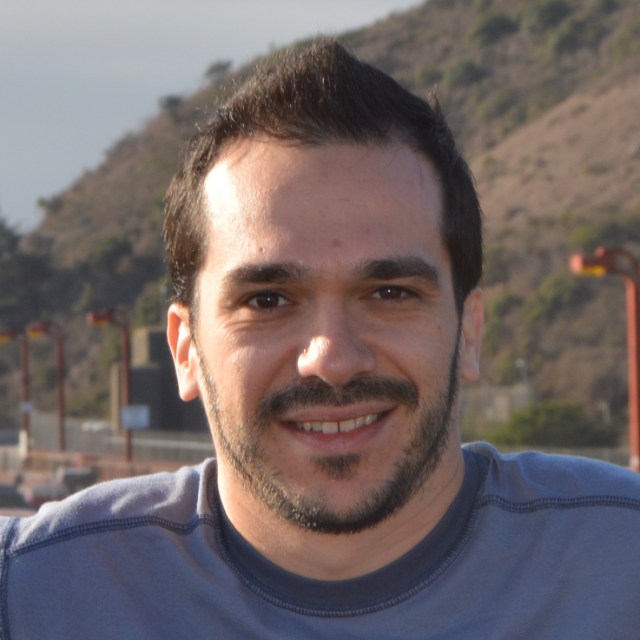
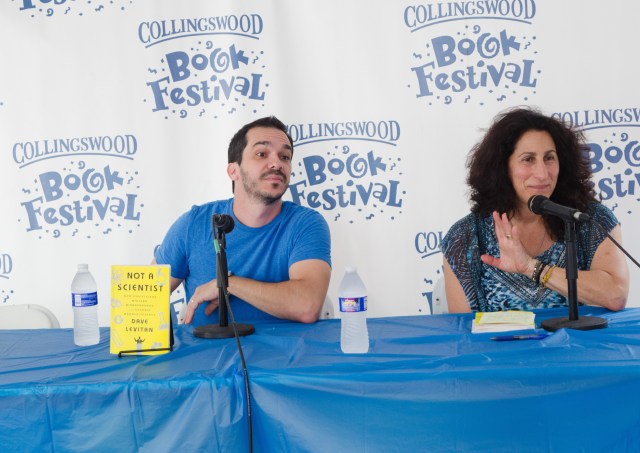
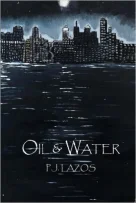




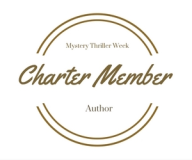

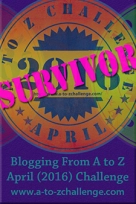

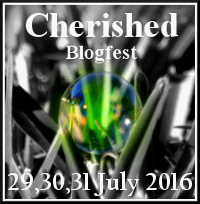
I didn’t know that about you. Cool – please do. I’ll do likewise on yours 🙂
Yes – with the fires here in CA and an unusually strong hurricane hitting Ireland tomorrow I think we’re on the cusp of some strange times indeed!
LikeLiked by 3 people
So sad and so true. :0(
LikeLiked by 2 people
It has been 🙂 I’m grateful to be able to have done it. A good proportion of my blog over the last year tackles the things we use every day and looks at the issues behind them. I’m used to reading and digesting science papers so I’ll often include some of the science behind each topic (e.g. the water and energy footprints of different textiles, or the case for neonics being harmful to bees).
LikeLiked by 3 people
I’m going to have to look back into the archives then. I have also published on neonics (we used to keep bees) and lots on water (I’m an environmental attorney and work primarily in water). Strange and dangerous times, literally.
LikeLiked by 2 people
Good post. Education of “the public” science is an impt topic. I’ve taken more than a year off work (as a research scientist – I have a PhD) to tackle some of these issues as they relate to ethical consumerism. Can relate to this post 🙂
LikeLiked by 2 people
Wow, that sounds like a great gap year! What kind of issues?
LikeLiked by 1 person
Pretty sure I would enjoy the Collingswood Book Festival. Thanks for bringing us a little piece of it. And the summer getaway town populated almost exclusively by scientists sounds like it would be pretty interesting too.
LikeLiked by 3 people
Haha – well, it was books of all genres, but a science-only fair would be cool, too, Ken!😎
LikeLiked by 2 people
This actually reminds me of a book I had to use in college: Physics for Poets. This book sounds GOBS better–thanks for introducing us to it! 🙂
LikeLiked by 2 people
Physics for poets?! Excellent!
LikeLiked by 2 people
Thanks for this, PJ. Enjoyed the interview and think this is a great topic. I started as a physics major and switched to engineering for some of the reasons Dave described. I wasn’t sure I was cut out for a career in research and enjoyed the fun of learning new ideas and leaping from one thing to the next. I wish we generally had a little more of the patience and pragmatism that an appreciation for science engenders–in particular a willingness to examine our thinking and see what really sticks, and why… True science, for me, is rooted in the courage to think… and the courage to revise assumptions in light of discovery. That said, the really big questions remain an open field, I think, and so science can also help inform meaningful dialogue.
Michael
LikeLiked by 3 people
So totally agree about the hierarchy of learning. We need to have more time to explore and expand from our explorations. Thanks for your comment and your enthusiasm, Michael!
LikeLiked by 1 person
Look at you sister. This sounds like a great festival. And the questions and answers here are nicely profound with lots to think about xxxxxx
LikeLiked by 2 people
Thanks, my dear. Have a bonny day.😍
LikeLiked by 2 people
You too xxxxxxxxxxxxxxxxxxxxxxxxxxxxxxx
LikeLiked by 2 people